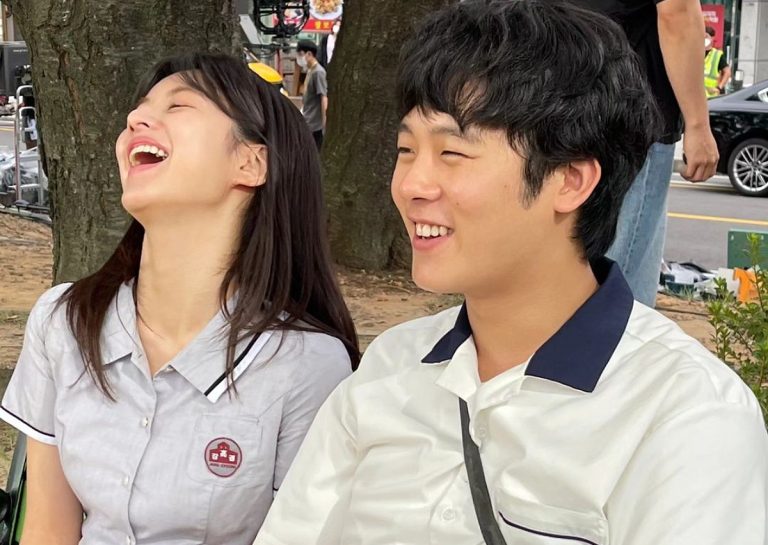
Understanding the Role of a Relationship Coach
In today’s fast-paced world, maintaining healthy relationships can be a challenge. Whether you’re dealing with romantic issues, familial conflicts, or friendship dilemmas, navigating the intricacies of interpersonal connections requires skills that many may not possess. This is where the expertise of a relationship coach comes into play. This article explores the multifaceted role of relationship coaches, the common challenges they help tackle, and how to find the right one for your needs.
What is a relationship coach?
A relationship coach is a trained professional who specializes in guiding individuals and couples through their personal relationship challenges. Unlike therapists, relationship coaches do not focus on diagnosing or treating mental health issues. Instead, they offer practical strategies, communication tools, and support to help clients improve their relationship dynamics. They come equipped with varied backgrounds, including psychology, sociology, and counseling, allowing them to approach relationship issues from multiple angles.
How can a relationship coach help?
Relationship coaches help clients identify and understand their relationship patterns, fostering better communication and enhancing emotional connections. They can assist with:
- Improving communication skills
- Setting and achieving relationship goals
- Addressing recurring conflicts
- Building trust and emotional safety
- Enhancing intimacy, both emotionally and physically
By providing a safe space for clients to explore their feelings and behaviors, relationship coaches empower individuals to take actionable steps towards healthier, more fulfilling partnerships.
Key qualifications of an effective relationship coach
Effective relationship coaches typically possess several essential qualifications:
- Formal Training: Many successful coaches have undergone formal training programs in coaching, psychology, or counseling, ensuring they’re equipped with the necessary skills to facilitate change.
- Experience: Practical experience, combined with a strong understanding of relationship dynamics, is crucial for effective coaching.
- Certification: Although not mandatory, many coaches obtain credentials from accredited coaching organizations, which can enhance their credibility.
- Empathy and Communication Skills: Strong interpersonal skills allow coaches to connect with clients authentically and effectively.
Identifying Relationship Challenges
Recognizing the specific challenges in a relationship is a pivotal step towards resolution. Here, we delve into common issues that relationship coaches can help address.
Common issues addressed by a relationship coach
Various issues can prompt individuals or couples to seek the expertise of a relationship coach. Some of the most common challenges include:
- Poor Communication: Many disputes stem from misunderstandings or an inability to express feelings effectively.
- Trust Issues: Betrayal or perceived betrayals can create significant barriers that require careful navigation.
- Conflict Resolution: Escalating disputes can become toxic if not managed properly.
- Different Life Goals: Couples may find their aspirations diverging significantly, creating friction.
- Lack of Intimacy: Emotional and physical distance can often lead to dissatisfaction.
Signs you might need support from a relationship coach
Identifying the signs of distress within a relationship can be crucial in seeking help. Here are some indicators that it may be time to consult a relationship coach:
- Frequent arguments or misunderstandings
- Feelings of stagnation in the relationship
- Emotional withdrawal from one another
- Recurring patterns of conflict that remain unresolved
- Desire for improved communication and intimacy
Understanding different relationship dynamics
Not all relationships are the same, and understanding the dynamics at play is critical for effective coaching. Relationship dynamics can include:
- Power Dynamics: The balance of control and influence between partners can impact relationship health.
- Attachment Styles: Individuals exhibit different attachment styles (secure, anxious, avoidant) that affect how they approach relationships.
- Communication Styles: Variations in how individuals communicate can lead to misunderstandings and conflict.
Benefits of Working with a Relationship Coach
The advantages of working with a relationship coach extend far beyond simply resolving conflicts. Let’s explore the key benefits.
Enhanced communication skills
One of the primary benefits of engaging with a relationship coach is the improvement in communication skills. Coaches often assist clients in expressing their thoughts and feelings clearly and effectively, fostering an atmosphere of openness and understanding. Enhanced communication helps partners articulate their needs and concerns, reducing misunderstandings and frustrations.
Setting and achieving relationship goals
Coaches work with clients to identify specific relationship goals, whether they pertain to intimacy, trust, or overall relationship satisfaction. By setting measurable objectives, clients can track their progress, ensuring that both partners remain accountable. Goal-setting creates a shared vision for the future, bringing partners closer together.
Improving conflict resolution techniques
Conflict is a natural component of any relationship; however, the way conflicts are managed can make all the difference. Relationship coaching equips individuals with problem-solving strategies that promote constructive dialogue. Coaches teach couples how to navigate conflicts while maintaining respect and empathy for one another’s perspectives, mitigating harmful disagreements.
Finding the Right Relationship Coach
Choosing the right relationship coach can have a profound impact on your relationship’s trajectory. Here are some guidelines for finding a suitable match.
What to look for in a relationship coach
When selecting a relationship coach, consider the following factors:
- Specialization: Look for coaches who specialize in the areas of relationship conflict you are facing.
- Reputation: Read testimonials and reviews to gauge the effectiveness of the coach.
- Comfort Level: It’s crucial that you feel comfortable with your coach to foster honest communication.
Questions to ask during your first meeting
Your initial consultation is an opportunity to assess whether a coach is the right fit. Here are some useful questions to ask:
- What is your coaching philosophy?
- How do you tailor your approach to different clients?
- Can you provide examples of how you’ve helped others with similar challenges?
- What is your background and training in relationship coaching?
- How do you measure progress during coaching sessions?
Evaluating coaching styles and approaches
Coaching styles can vary significantly, from directive approaches where the coach takes a more active role, to non-directive methods that emphasize client autonomy. Evaluate what style resonates with you and your relationship needs. Understanding a coach’s methodology will help you determine if they are well-suited to assist you effectively.
Measuring the Success of Relationship Coaching
Establishing metrics for success can help you and your coach navigate the coaching process more effectively. Here’s how to gauge the progress of the coaching journey.
Identifying positive changes in your relationship
Successful coaching should yield noticeable improvements in the quality of the relationship. Signs of progress might include:
- Increased willingness to communicate openly
- More frequent joint problem-solving efforts
- Reduction of conflict incidents
- Stronger emotional connections and intimacy
Setting metrics for progress with your relationship coach
Work with your coach to establish metrics that will help evaluate your progress. These can include:
- Frequency of exercises/homework assignments completed
- Feedback from both partners on their perceptions of improvement
- Specific relationship goals achieved within set timelines
Case studies: Success stories of relationship coaching
Examining success stories can inspire hope and illustrate what is achievable through coaching. Many coaches have real-life examples of couples who experienced transformative changes, such as:
- A couple who transformed their communication: After a year of repeating the same arguments, they learned active listening techniques that radically improved their interactions.
- A couple who reignited intimacy: Utilizing strategies provided by their coach, they rediscovered the joy of shared experiences, leading to greater connection.
- A couple overcoming trust issues: Through coaching, they developed a framework for openness that enabled them to discuss their fears and rebuild their bond.
Engaging with a relationship coach can be one of the most impactful decisions you make for your personal life. It not only empowers you to confront challenges directly but also equips you with the skills and insight required to create lasting, meaningful connections. By embracing the coaching process, you have the opportunity to turn relationship challenges into profound growth experiences.






